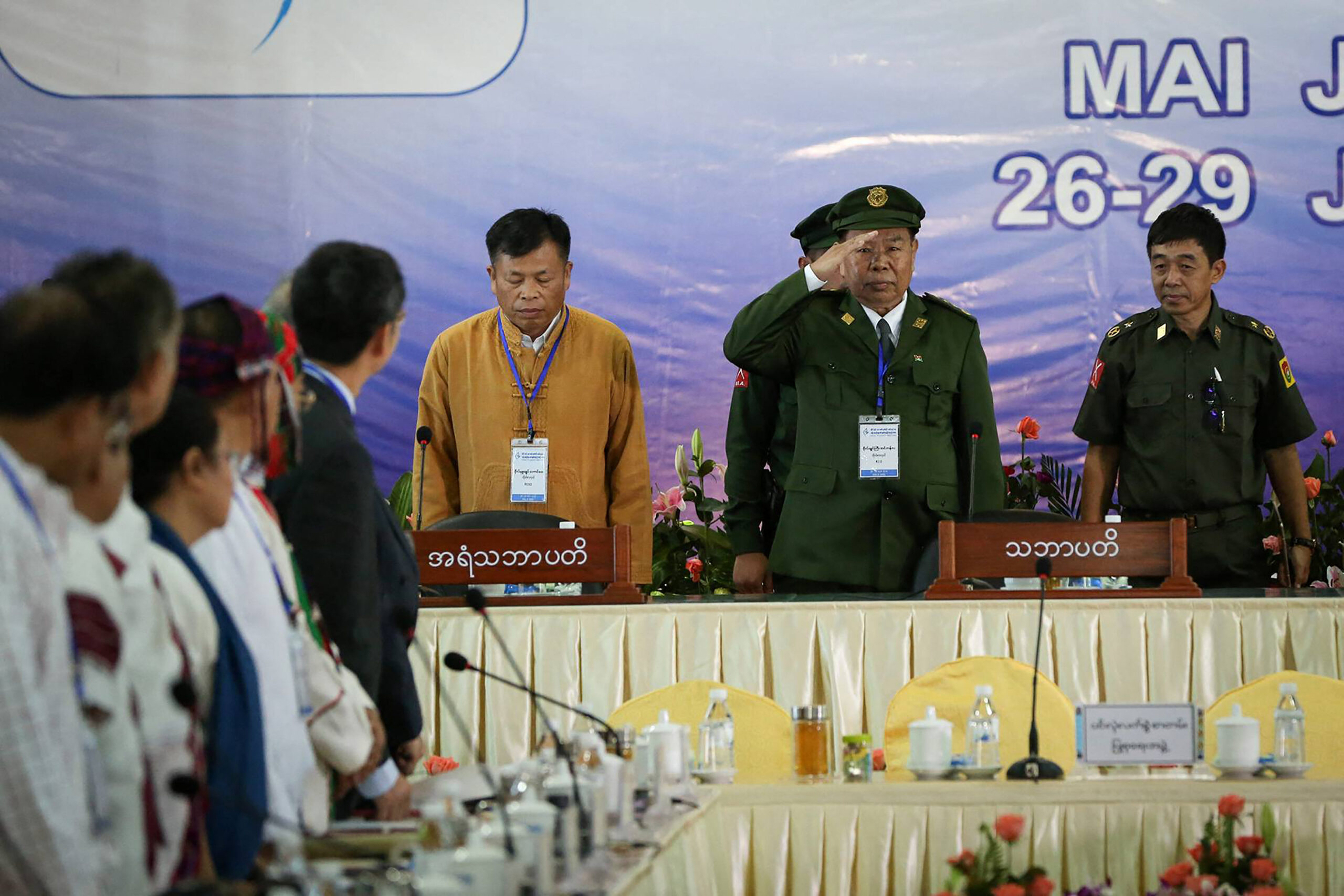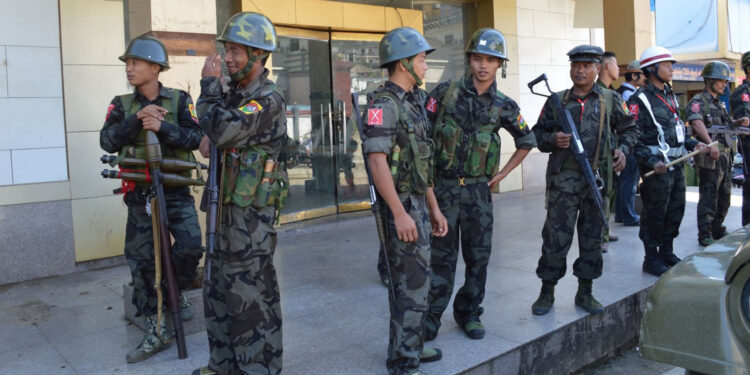China on Wednesday renewed its push for successful Kachin rebels to stop fighting against the Myanmar junta in their state and safeguard Chinese investments.
Chinese Communist Party Central Committee member Wu Gang met in Kunming with a Kachin Independence Army (KIA) delegation led by N’Ban La, the chairman of the group’s political wing, the Kachin Independence Organization (KIO).
KIA spokesman Colonel Naw Bu said the delegation left for China on Sunday for talks with the Chinese government but refused to disclose what was on the agenda.
But sources close to the meeting said Beijing told the KIA to halt fighting in Kachin State.
On the ground, the KIA is busy trying to seize junta-controlled Bhamo, a strategic town on the eastern bank of the Irrawaddy River, after capturing most of the state, including major trade outposts and the rare-earth mining hub of Pangwa on the Chinese border.
“China told the KIA to maintain the status quo and engage in political talks with the regime after the election” planned for late next year, a source said.
“They also said China will take a leading role in bringing peace to northern Myanmar and talked about sending private security companies to Myanmar” to protect Chinese projects, the source added.
Beijing is a staunch ally and arms supplier to the junta and supports the planned election, which has been widely denounced as a sham.
But its chief interest is protecting Chinese investments, including several Belt and Road-related projects and the supply of rare earth metals vital to China’s burgeoning industries.
China has been pressuring ethnic armed groups in northern and northeastern Myanmar that it has close ties with to stop fighting after they seized major towns and trade routes between the Chinese border and Mandalay in the country’s center.
So far, the intervention has largely failed, although the ethnic Myanmar National Democratic Alliance Army (MNDAA) recently agreed a ceasefire after China put its leader under house arrest in Kunming.
Another source said China discussed reopening the border at Wednesday’s meeting.

China closed border crossings with Kachin State a few months ago in attempt to pressure the KIA to lay down its arms. The KIA in turn closed any border crossings it controls to cut off rare earth exports.
The source said the crossings had reopened as of Friday, though China still maintains a trump card by banning the sale of fuel and electronics like drone components across the border.
Fuel exports have been banned since August, but the ban on supplying drone components was added after Myanmar junta boss Min Aung Hlaing complained that “some powerful countries” support the armed groups with technology.
Observers said the meeting will have focused on rare earths, and China’s reopening of the border aims to appease the KIA, which now controls the mining hub, creating challenges for China’s dominant position in the market.
Jason Tower of the United State Institute of Peace said the KIA’s control of all rare earth mining prompted Chinese industry insiders to publicly announce a coming surge in prices—sparking significant volatility in the Chinese stock market in November.
He told The Irrawaddy the rare earth mines have been a game changer for the KIA, providing it with significant leverage to reduce pressure from the China side.
“China wants the KIA to resume operation of the mines, and has pushed to reopen the border,” he added.
Previously the responsibility for talks with ethnic armed groups along the border had fallen to the Chinese special envoy to Myanmar, Deng Xijun.
But Beijing seems to have decided to bring out the bigger guns, with Wu Gang taking the leading role in the latest meeting.
Wu, a member of the Chinese People’s Political Consultative Conference (CPPCC) and former ambassador to Germany, is the most senior Chinese political figure to meet with an EAO so far.
Chinese sources said Wu was assigned to take over because Beijing is unhappy with Special Envoy Deng’s failed efforts to stop the fighting.
Apart from KIO leader N’Ban La, the meeting in Kunming was joined by the KIO’s Lieutenant General Gun Maw, the secretary of its Department of General Administration, Laphai Zaw Yaw, and Colonel Khun Naung.

















